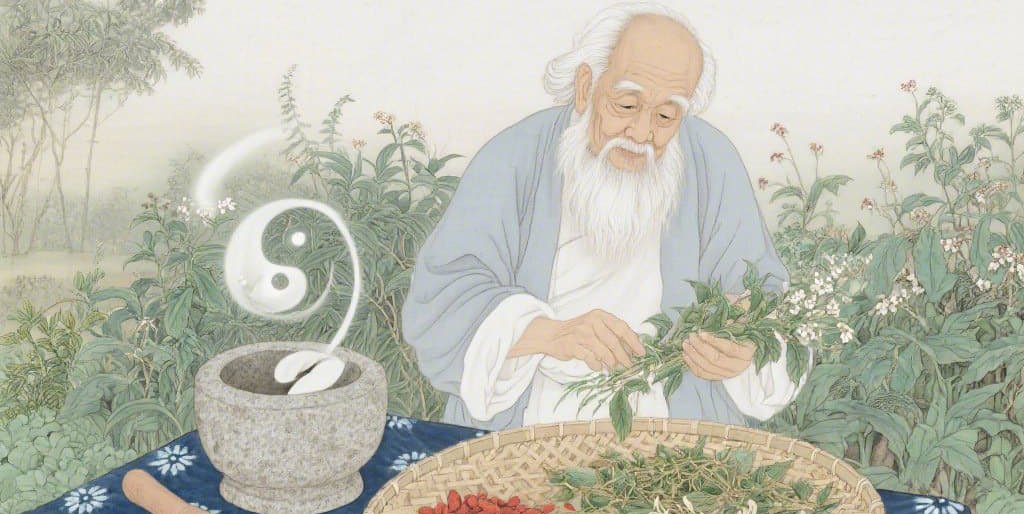Baidai Xini (Miscarriage)
Overview
In Miao medicine, miscarriage is known as Baidai Xini. Baidai Xini is often caused by congenital deficiencies, physical weakness, excessive sexual activity, or contaminated food. The pathogenic mechanism mainly involves insufficient congenital kidney qi or damage caused by irregular sexual activities, leading to impairment of the Chong and Ren meridians, resulting in unstable fetus formation or loss of fetal stability, thereby causing miscarriage. Additionally, prolonged illness, improper diet, and maternal weakness deplete qi and blood, harm the spleen and stomach, exhaust the postnatal production sources, and lead to insufficient nourishment of the Chong and Ren meridians and the fetus, resulting in miscarriage. Clinically, it is characterized by vaginal bleeding, lower abdominal pain, and miscarriage occurring before seven months of gestation.
In Traditional Chinese Medicine (TCM), miscarriage is also known as “abortion,” “incomplete birth,” or “concealed miscarriage,” attributed to congenital insufficiency, overexertion, irregular sexual activities, or poor dietary habits damaging the Chong and Ren meridians, leading to unstable fetal origin or defective fetal development, and ultimately resulting in spontaneous abortion.
In Western medicine, this condition is referred to as miscarriage, with influencing factors including chromosomal abnormalities in the embryo or fetus, maternal diseases (such as systemic diseases and endocrine disorders), and environmental exposures (such as excessive radiation or chemical substances).
Hu Hou Ji Peng: Miao Medicine Classification
Baidai Xini is classified as a minor disorder and is further divided into three subtypes: miscarriage due to cold disease with qi and blood deficiency, miscarriage due to kidney deficiency from cold disease, and miscarriage due to blood heat in the hot meridian.
Ai Jiang Duo: Causes
The causes of this disease are complex but are closely related to congenital deficiencies, physical weakness, overexertion, excessive sexual activity, and contaminated food.
Geng Duo Meng: Pathogenesis
Insufficient congenital kidney qi or excessive sexual activity depletes kidney essence, damaging the Chong and Ren meridians and resulting in unstable fetal formation and miscarriage. Maternal weakness from chronic illness or improper diet further depletes qi and blood, harms the spleen and stomach, exhausts postnatal production, and leads to miscarriage due to lack of nourishment.
Diagnostic Key Points
Diagnostic Basis:
(1) The main clinical manifestations are vaginal bleeding and lower abdominal pain.
(2) History of early pregnancy or symptoms such as threatened miscarriage.
(3) Exclusion of other pregnancy-related diseases.
Relevant Examinations:
Gynecological examinations, urine pregnancy tests, B-ultrasound, and blood routine tests can confirm the diagnosis.
Differential Diagnosis
Baidai Mengqu (Pregnancy Abdominal Pain)
Baidai Mengqu is related to physical weakness and qi-blood deficiency. The pathogenesis involves weak qi failing to circulate blood, leading to blood stasis. It manifests as lower abdominal pain, dizziness, palpitations, pale complexion, cold limbs, and poor appetite.
Baidai Xini is associated with congenital insufficiency, physical weakness, excessive sexual activity, and poor appetite. The pathogenesis involves insufficient kidney qi or irregular sexual activity depleting kidney essence, damaging the Chong and Ren meridians, leading to unstable fetal development and miscarriage. It is characterized by vaginal bleeding, lower abdominal pain, and miscarriage before seven months of pregnancy.

Syndrome Differentiation and Treatment
Miscarriage Due to Cold Disease with Qi and Blood Deficiency
Mengli Duo (Clinical Manifestations):
Miscarriage occurring between 3–7 months of pregnancy, with vaginal bleeding, lower abdominal pain, pale or yellowish complexion, weakness, shortness of breath, dizziness, and palpitations.
Xing Leng (Meridian Association): Cold meridian and cold disease.
Jiahe Meng (Treatment Principle): Tonify qi and nourish blood, stop bleeding and stabilize the fetus.
Ouduo Xijia, Feng’ou (Prescription and Analysis):
Jijiannuo (Wild marigold flower, yang que hua) 20g
Doudun (Eucommia bark, du zhong) 15g
Zhidougangjiafeiyou (Mistletoe stem, sang ji sheng) 15g
Yangyou (Rubia carbonisata, qian cao tan) 15g
Zhendouwobo (Wolfberry fruit, gou qi zi) 15g
Qiangniu (Dipsacus root, xu duan) 15g
Decoction for oral administration.
The combination tonifies qi and blood, nourishes the liver and kidney, and stabilizes pregnancy.
Miscarriage Due to Kidney Deficiency from Cold Disease
Mengli Duo (Clinical Manifestations):
Miscarriage occurring before seven months, with fetal prolapse, abdominal pain, possible vaginal bleeding, dizziness, palpitations, and lumbar weakness.
Xing Leng (Meridian Association): Cold meridian and cold disease.
Jiahe Meng (Treatment Principle): Tonify the kidney and stabilize the pregnancy.
Ouduo Xijia, Gang’ou (Prescription and Analysis):
Zhidougangjiafeiyou (Mistletoe stem, sang ji sheng) 10g
Daliangaguo (Twin kidney herb, shuang shen cao) 12g
Doudun (Eucommia bark, du zhong) 20g
Nali (Chinese yam, shan yao) 15g
Qiangniu (Dipsacus root, xu duan) 15g
Zhenbuyang (Cherokee rose fruit, jin ying zi) 15g
Decoction for oral administration.
The combination strengthens the liver and kidney, nourishes the blood, and stabilizes pregnancy.
Miscarriage Due to Blood Heat in the Hot Meridian
Mengli Duo (Clinical Manifestations):
Fetal prolapse, bright red vaginal bleeding, abdominal pain, accompanied by a flushed face, thirst, heat in the palms, restlessness, scanty yellow urine.
Xing Leng (Meridian Association): Hot meridian and hot disease.
Jiahe Meng (Treatment Principle): Clear heat, relieve irritability, stop bleeding, and stabilize the pregnancy.
Ouduo Xijia, Gang’ou (Prescription and Analysis):
White peony root (bai shao) 10g
Galaodoujin (Gardenia tea, shan zhi cha) 15g
Li (Eclipta herb, zao lian cao) 12g
Doubuo (Lycium root bark, di gu pi) 12g
Cortex moutan (mu dan pi) 10g
Decoction for oral administration.
The combination clears heat, nourishes yin, stops bleeding, and calms the fetus.
Prevention and Care
Eliminate and avoid causative factors to (helps maintain) miscarriage.
Avoid cold exposure and maintain appropriate temperature.
Regulate diet with nutrient-rich, easily digestible foods that do not harm the spleen and stomach.
Maintain balanced work and rest, and moderate sexual activities.
Regulate emotions and keep a pleasant mood.
Notes
According to Miao medicine, the causes of diseases include internal damage and external factors. This disease is primarily caused by congenital kidney qi deficiency or excessive sexual activity, leading to impairment of the Chong and Ren meridians and resulting in miscarriage. Maternal weakness, chronic illness, and dietary irregularities further deplete qi and blood, harming the spleen and stomach, and ultimately result in miscarriage. Treatment focuses on stabilizing the fetus and reinforcing the Chong meridian.


Leave a Reply